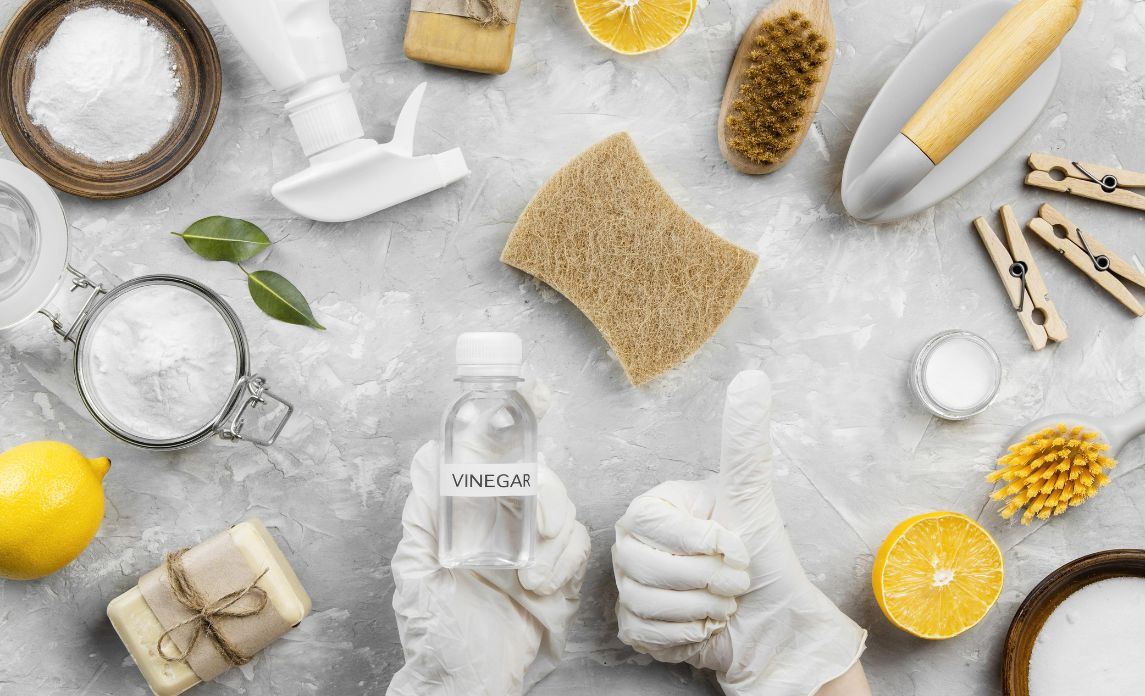Keeping a space clean is often a straightforward task. While it can get exhausting at times, the end goal is always clear: create a healthy, safe, and comfortable environment to live in or work at (or both).
This goal is much more easily achieved with the appropriate tools and products. However, you may run into some issues if you have pets at home or if you allow pets in your business premises. Why? Because not all human-safe substances are also pet-safe.
What’s more, it can be a challenge to stop pets from sniffing cleaning mixtures or licking their paws after stepping on a puddle of who-knows-what. Thus, you need to take extra care when cleaning if or when there are pets around.
Here are some things you need to remember to keep animals safe when you clean, especially when it comes to the best products and practices:
What Cleaning Products to Avoid
Most of the products used by your trusted commercial cleaners, both traditional chemical and eco-friendly options, are available in stores. With some elbow grease, you can also achieve the same quality of cleanliness.
However, keep in mind that even “natural” ingredients may cause harm to pets. This is because their bodies are different and respond differently to a variety of substances. A good example here are essential oils, which are perfectly fine for humans but can be toxic to dogs and other animals.
That’s why you should make a habit of checking the labels of cleaning products and avoid the following:
- Ammonia
- Benzalkonium chloride (found in most disinfectants)
- Chlorine bleach
- Formaldehyde
- Fragrances
- Glycol ethers
- Phenols
These substances may cause irritation, or sometimes severe damage to internal organs when inhaled or ingested. Some, like formaldehyde, may even cause cancer.
Do note that some ingredients may be too common and thus more difficult to avoid. An example here is sodium lauryl sulphate, a foaming agent. Try to find alternatives, such as those made from plant oils.
Go Natural
As mentioned, not all cleaning products that come with a “natural” label are completely safe for animals.You should still be mindful of additives and other ingredients, which may change the chemical structure of a harmless substance into something dangerous.
If you want to be 100% sure, you can make DIY cleaning products using the following ingredients that have been proven to be animal safe. Some example include:
- Distilled white vinegar or lemon juice. The former is more potent than the latter, but they can be both used for killing bacteria and fungi. You can use lemon juice for more delicate materials or surfaces.
- Baking soda. It’s a natural and powerful deodoriser. Thanks to its structure, it’s also a mild abrasive. You can sprinkle baking soda on stained tiles, sinks, pots, and pans to restore their original colour and shine. Speaking of pots and pans, you can also use baking soda as a degreaser.
- Hydrogen peroxide. If you’re looking for a safer bleach alternative, you can use hydrogen peroxide. Do note that it can still cause problems for both humans and animals when ingested, but it doesn’t have harmful fumes like chlorine.
With these three ingredients alone, you can already whip up multiple types of products like all-purpose cleaner, stain remover, and drain cleaner.
Keep Pets Away
The best way to keep your pets out of harm’s way while you’re cleaning—no matter the cleaning products you’re using—is to get them out of the space. If possible, find a sitter that can take care of your pet for a couple of hours; if not, invest in modular fencing or similar mechanisms and create a temporary area where they can stay.
Don’t let your pets out of this area while you’re cleaning. If you’re using any chemicals, rinse thoroughly using clean water and let everything dry completely before letting your pets back into the area.
You may also want to invest in training, if your pet is trainable like a dog or a cat. This can make things easier for you and safer for your pets.
Store and Dispose of Cleaning Supplies Properly
Even when you’re not cleaning, your pets may still be in danger if your cleaning products and materials aren’t stored properly. They may knock over containers or chew boxes, causing spills and other nasty accidents.
Fortunately, these situations are easy enough to avoid by storing your cleaning products in lockable cabinets. You may also put certain items on high shelves, although keep in mind that some pets may get clever in climbing.
You should also make sure to dispose of dirty, unused, or expired cleaning supplies. Check the label of the products for disposal instructions, or ask your recycling/rubbish collector for advice.
Ask Your Veterinarian
Last but certainly not least, when in doubt, ask your veterinarian. Their job is to keep your pets healthy, so it’s reasonable to expect them to know all about pet-safe cleaning products.
Remember: your pets depend on you for their health and safety. Always practise due diligence when conducting activities like cleaning, so that your animal companions will always be safe and sound.


